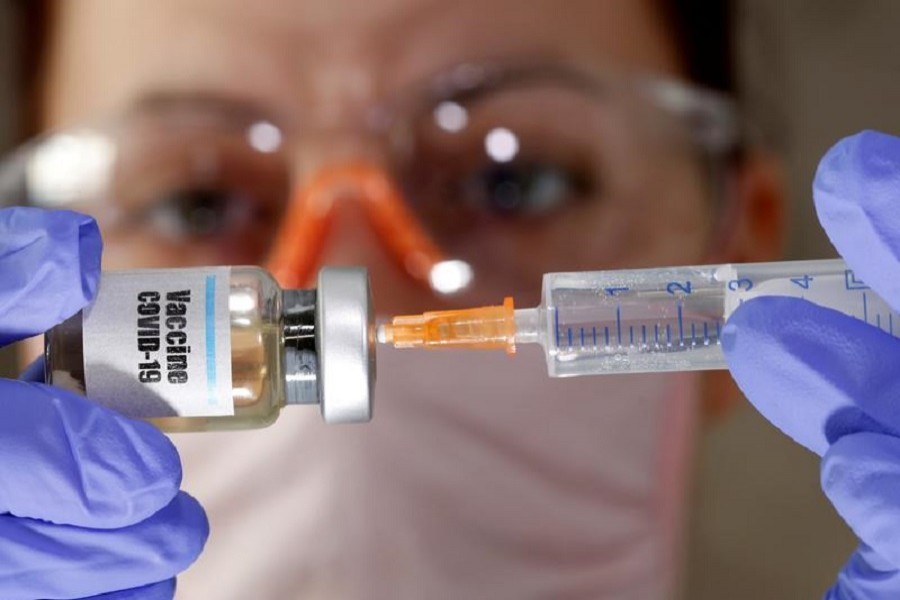The Covid-19 vaccination, one of the most-discussed issue in the world, starts the programme in Bangladesh today (Sunday). It is a notable achievement since many countries are yet to purchase vaccines and launch such a programme. But it is a matter of great disappointment that the number of people who got themselves registered for vaccination until now is disappointingly low.
Several factors could be responsible for the lukewarm response. The negative information circulated in a section of traditional and social media about the vaccine is one. Another factor, possibly the most important one hurting the programme, is the online registration process for vaccination. It is not at all user-friendly. The significant decline in both Covid infection and death rates, though the most desirable situation, might also be discouraging the people from taking the jabs.
The successful development of vaccines in the USA, the UK, China, Russia and India against SARS-CoV-2 in such a short time is a unique scientific achievement. The scientists could never develop vaccines against any deadly pathogen within such a short time. The disastrous impact of the Covid pandemic on life and living across the globe has forced the scientific community and resourceful countries to speed up the work for vaccine development. The heightened eagerness of the scientists has also made it possible.
The government has proved the speculations about vaccines wrong and already received 5.0 million doses of Oxford- AstraZeneca vaccines from the Serum Institute of India (SII) -- within the shortest possible time. The vaccines have also reached the district headquarters for mass inoculation, meanwhile.
But the problem with registration coupled with the lack of a motivational campaign is likely to affect the vaccination programme. The registration of about 0.2 million people for vaccination highlights the fact. Such low-registration has forced the health authorities to redesign its vaccination programme. Under the revised plan, the health workers will inoculate 3.5 million people in the first month of the vaccination. Earlier, the target was 6.0 million. Because of the changed situation, the authorities have also decided to inject the second dose of the vaccine after four weeks, not eight weeks.
Many people are willing to get themselves registered online using the government-designated app called 'Suroakha'. But despite repeated attempts, most are not being able to do so. The app is also not available on the Google Play. A top health official has reportedly dismissed the possibility of finding it in the Google Play soon.
When the government has made the registration mandatory for getting the Covid jab, it should have taken necessary measures to make the process easy. Besides, the health authorities should have also launched a widespread media campaign to remove suspicion about the vaccines from the people's mind. Even in many developed countries, a sizeable section of their populations was initially reluctant to take the jab. But following strong motivational campaigns, the situation is now altogether different.
Bangladesh, for long, has been familiar with vaccination programmes. Its expanded immunisation programme (EPI), meant for children, has been receiving plaudits globally. Hopefully, the people would gradually volunteer to take the jabs. But the government should do its part and launch an effective motivational programme to get the people vaccinated within the shortest possible time to help the economy go back to full gear.


